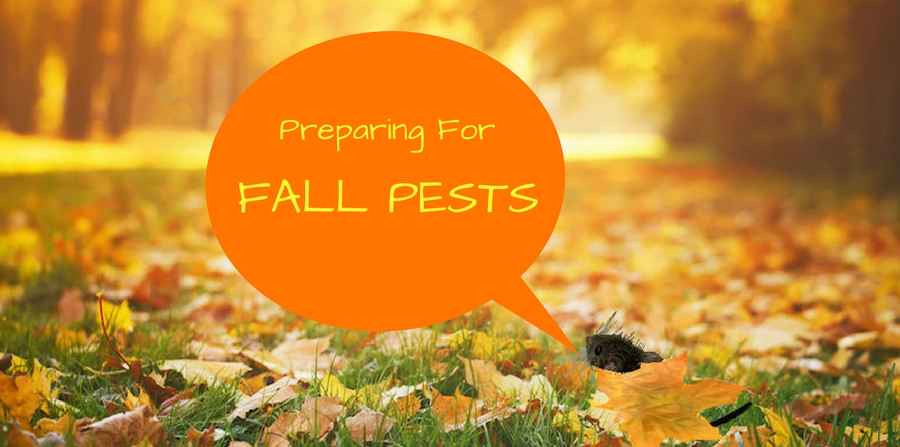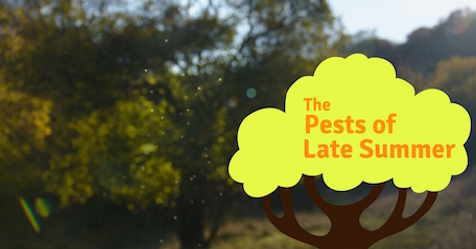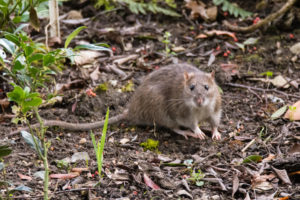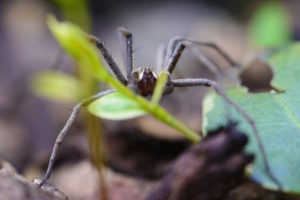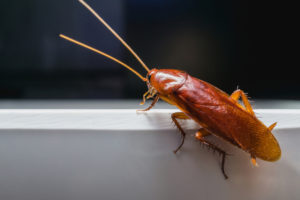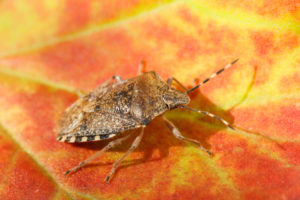Earlier this month, we listed four of the most common pest infestations that happen in late summer. Each of these pests had something in common: they were all trying to get out of the cold. Unfortunately, these pests don’t stop trying to sneak their way to warmth just because it’s fall. In fact, they only try harder.
Fall is the perfect time for preventative pest maintenance because it’s warm enough that you can still go outside and get work done without freezing. The earlier you pest-proof your home, the fewer pests will be able to use your home as their own personal winter vacation pad. Here are four simple things you could do this fall to minimize your risk of a winter-long pest infestation. Winter is rough enough on its own!
Yard Work
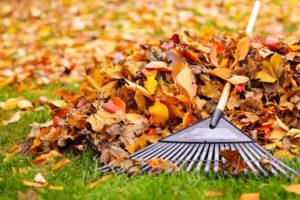
If your yard gets bogged down in long, dying grass, fallen leaves, or untrimmed bushes and shrubs, opportunistic pests WILL find it. It would be bad enough if hordes of pests just hung around eating your yard and making themselves a nuisance, but they won’t just stay there. When it starts getting colder, they’ll be all-too-happy to move right in.
Rake up fallen leaves to avoid having soggy piles build up in your yard. Mow your lawn short until it stops growing, and don’t forget to trim your bushes. Pests often use decorative yard plants as ladders, so it’s a good idea to keep a border of at least 3 feet between the edges of your home and plant life. As winds pick up and temperatures drop, pick up fallen debris from nearby trees and shrubs. Finally, make sure your yard isn’t absorbing too much moisture. There should never been puddles of stagnant water on your property.
Border Maintenance
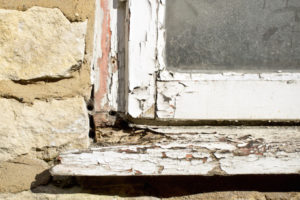
While you’re outside, take the time to walk the perimeter of your home. Look for any small cracks or gaps pests could use to get inside. These cracks won’t always look the way you’d expect. One common way pests get into homes is by crawling up utility lines like pipes and electrical wires. They follow the line and squeeze through small gaps where the utilities enter the home. Pests like spiders and cockroaches can even crawl through plumbing vents and chimneys on the roof.
First, caulk over the gaps around utility lines. Then, check each window and door frame and sill. Replace old weatherstripping, make sure doors and windows are seated correctly, and check for drafts. Window frames tend to be particularly vulnerable, so check them thoroughly and repair them as necessary. Don’t forget about windows in the basement or attic, either. Make sure you’ve got all the entrances covered–big and small, high and low–and you’ll go a long way toward a pest-free winter.
Decluttering
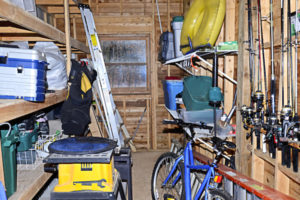
Clutter doesn’t just help pests while they’re outside. The messier your home is, the more places pests have to hide and nest. Cluttered, junk-filled basements provide all kinds of the dark, confined, humid places that pests love, and they’re really good at seeking them out. It’s easy to let things pile up in your basement, attic, or storage place, especially in the winter. Remember, however: the longer you go without cleaning, the more comfortable pests will feel living in your home.
Everyone knows about “spring cleaning”, but no one ever talks about “fall clean up”. You should change that. Go through your basement, attic, closets, and other storage places this fall. Clean out anything you don’t need. Organize everything you’re keeping and make sure it’s in a safe, secure place. Pests are shy by necessity, so the harder it is to find shelter in your home, the less they’ll want to stay. We guess you could say you’re making your home “scary” clean!
Good Habits

Probably the most important thing you can do to keep pests away is to develop some good anti-pest habits. It’s not enough to spend a couple days in fall over-preparing for pests like a student cramming the night before a test. You’ll experience much more success (and fewer pests!) if you keep up with your anti-pest regimen all fall and winter long.
First, don’t let clothes, food, boxes, or other junk pile up in your basement, mud room, or garage. Take the garbage out to the dumpster as soon as it’s full, and keep it in plastic bags. Dispose of anything pungent or compostable in the dumpster right away, instead of letting it sit in the dumpster. Get routine maintenance problems like plumbing leaks dealt with as quickly as possible. Pick up yard clutter in the snow every now and then, even if it’s cold out. Store firewood away from the house, never up against it.
Fall is pest season crunch time. Our rodential rivals and insectoid irritants will be doing absolutely everything they can to stay warm over the winter, so we’ve got to do everything we can to keep them out.
Following steps like these during your “fall cleanup” (yes, we’re making it a thing) will go a long way toward keeping even the most desperate and creative of pests out of your home. And remember, in the unfortunate event you do end up with an infestation, don’t panic! Just give Griffin a call. We’ll seal things up and get pests out.

